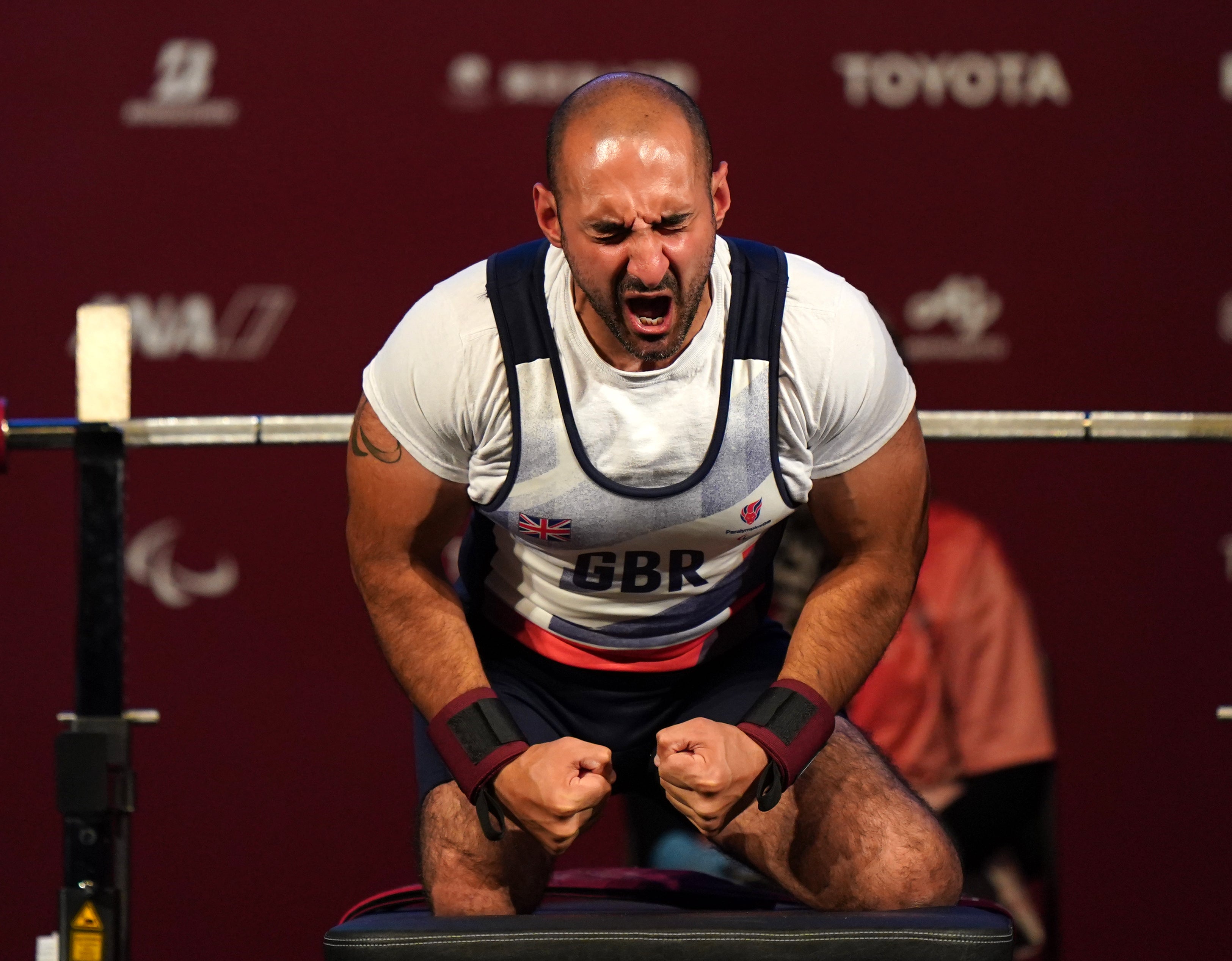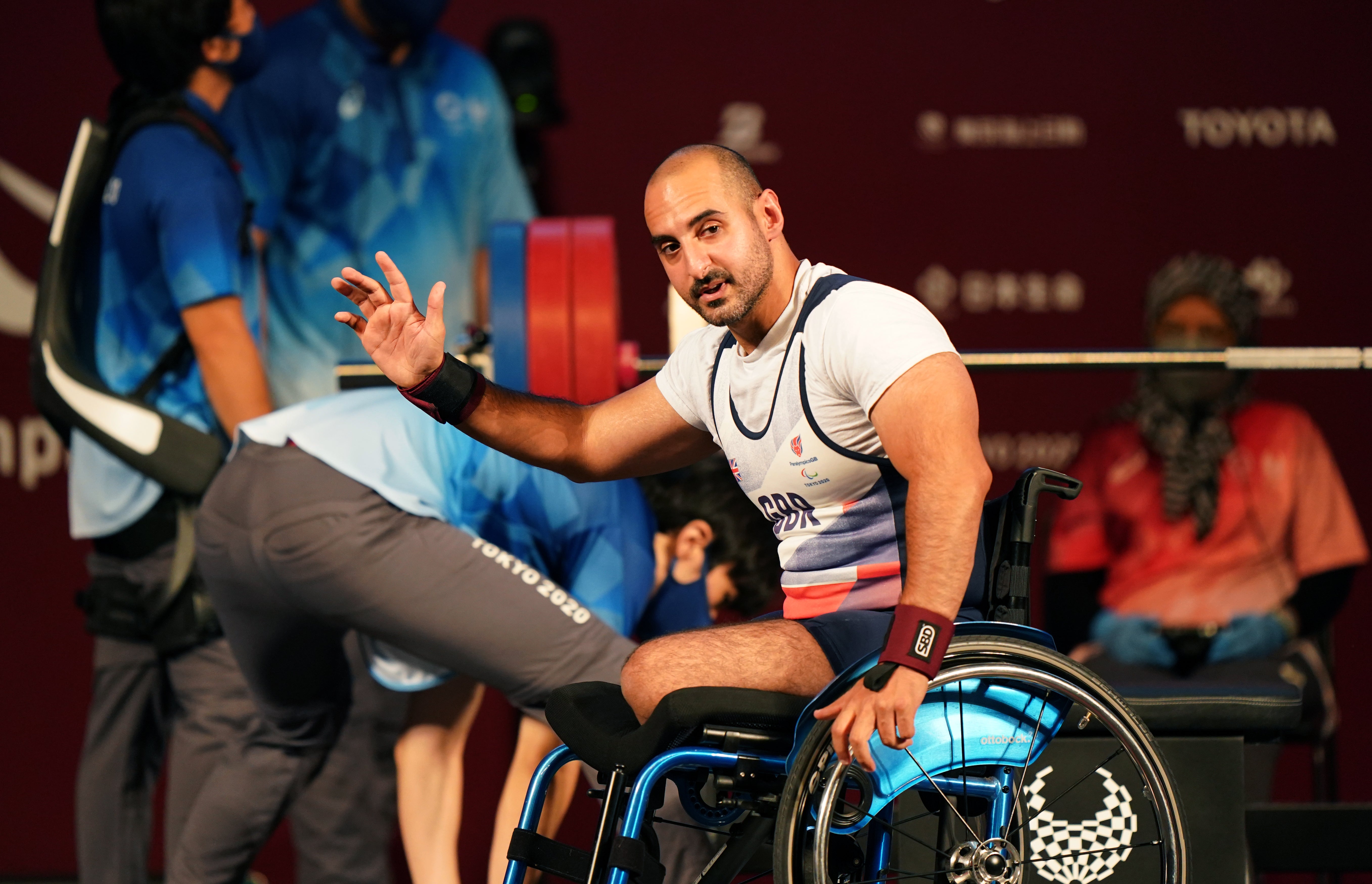Ali Jawad wins ‘medal in life’ after inspirational journey to Tokyo
The 32-year-old powerlifter was out to prove that he could conquer Crohn’s disease and reach the biggest stage in his sport – and he did just that

The old Ali Jawad is dead and now comes a new life for the powerlifting king, whose next goal is to try to feel well again.
The 32-year-old was not at his fourth Paralympic Games for a medal, and he didn’t get one. He was in Tokyo to prove that he could conquer Crohn’s disease and reach the biggest stage in his sport.
Jawad did just that, successfully lifting 163kg and then 164kg, before trying and failing at 166kg and exiting the competition in sixth place.
“I’m very proud to have made it here because I was never supposed to make it,” he said. “I said all along my medal was to get here and I’ve done that. I don’t have to have a medal around my neck to represent the journey that I’ve been through.
“I’ve managed to take Crohn’s to the very limits of what anyone’s been able to take it before, and managed to survive and I’m here. I’m very proud.”
He was introduced to bright lights and pumping music at the Tokyo International Forum, a surreal way to end three years of isolation at home in Loughborough.
Truth is, “the old Ali” would have won -59kg gold here. China’s Qi Yongkai took gold with a lift of 187kg and the Brit won Paralympic silver in Rio with a 190kg world record.
“Actually, if you look at the results, I can still mix it with the best at my best, I just have to be healthy,” he said.
The truth that Jawad has never shied away from is that healthy, he is not.
The Londoner hasn’t lifted more than 170kg in five years, a weight he improbably hauled up to qualify at the World Cup event in Tbilisi earlier this year.
That’s because of the debilitating side-effects of prednisolone, his Crohn’s medication, the only solution to the condition that allowed Jawad to continue to Tokyo.
“The last five years have been the biggest rollercoaster of my life,” he said. “The reason I put my body through it was that I promised myself when I was 19 that Crohn’s wouldn’t be the reason why I gave up.
“It would be the factor that meant I carried on. I’m glad I saw the process through to the very end. No matter what the outcome, I’m proud of myself for digging deep.”
Jawad has effectively been shielding for three years, so weak is his immune system. He reckons he has seen his family three times in that period.
He snatched some time with them the day before flying out to Japan, but the parents that carried him in their arms to Britain from war-torn Lebanon have been left to watch his condition deteriorate from a distance.
“They didn’t want me to take the risks, they probably wanted me to retire after Rio,” he said. “I understand that they don’t want to see me go through what I’ve gone through. But I’m lucky that I isolated so nobody saw it, nobody saw what happened behind the scenes.
“If she had seen it, my mum would have killed me! It helped that she wasn’t close to that. My parents sacrificed a lot to come to the UK, they’ve given me a life I could only dream of.
“I’ve had the opportunity to represent my country at four Paralympic Games. I think deep down they’re proud and I hope that I can go home now and just spend some time with them.”
The choice facing Jawad now is stark. He passed up the chance to get stem cell therapy for Crohn’s as part of a trial last year and that decision can’t be overturned.

He will immediately stop taking prednisolone, but the only sustainable treatment currently on the table is the insertion of a stoma bag, which would mean retirement.
“I think the first thing is, come off the medication I’m on. That was the big risk,” he said. “It’s just completely transformed my body in a way that means you can’t train and live normally and recover from training.
“After that we’ll make a decision about whether or not I make a competitive comeback. I can’t compete sick or in the position I’m in now.
“I need to come off it but I need to come off it slowly and find an alternative method to try and treat me and get me in remission.
“Unfortunately at the moment we don’t know what my options are and that’s my reality. The only one on the table now is the stoma bag.
“I don’t think I’m ready for the stoma bag just yet. If it’s the only option, I’m going to have to take it and put my health first. Unfortunately, to have that, then it’s retirement.
“I’m very proud to have made it here. I think I’ve won a medal in life.”
Sainsbury’s is a proud supporter of ParalympicsGB and a champion of inclusive sport for all. Sainsbury’s commitment to helping customers to eat better has been at the heart of what we do since 1869. For more information on Sainsbury’s visit www.sainsburys.co.uk/ and https://paralympics.org.uk/
Join our commenting forum
Join thought-provoking conversations, follow other Independent readers and see their replies
Comments
Bookmark popover
Removed from bookmarks